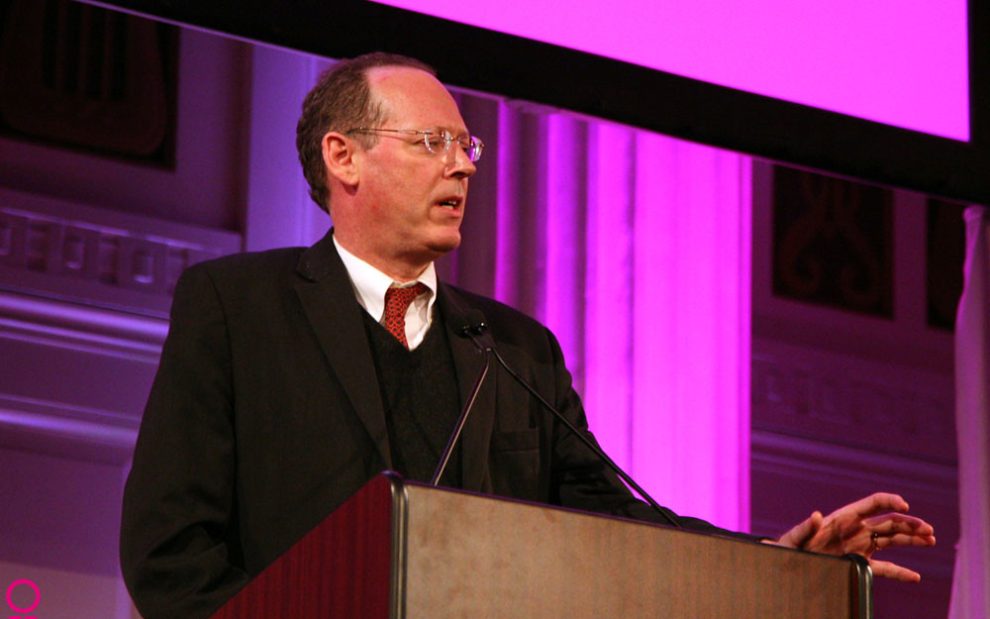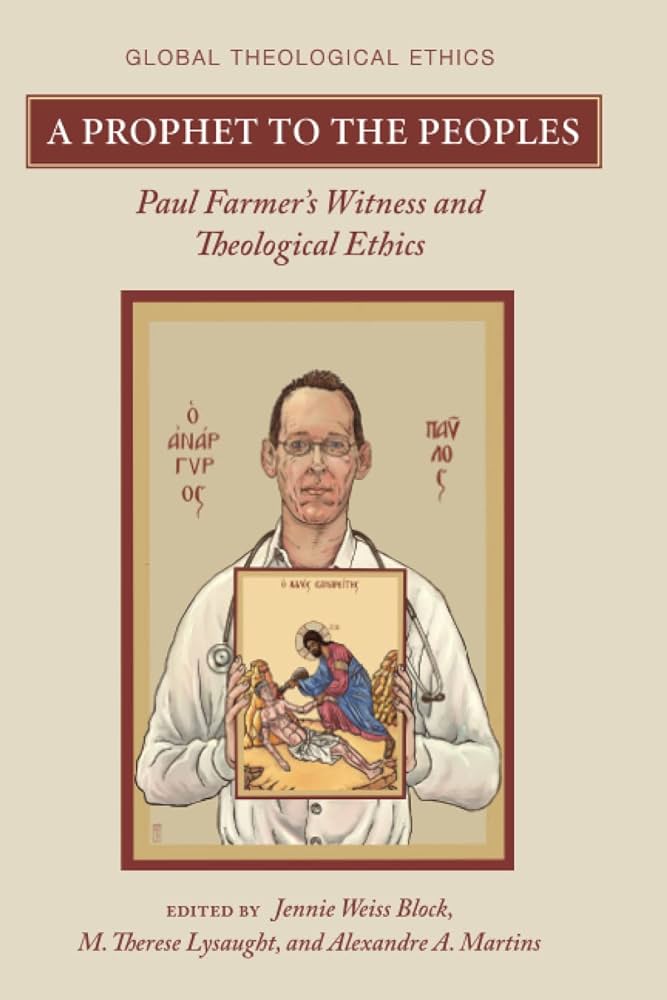A Prophet to the Peoples: Paul Farmer’s Witness and Theological Ethics
Edited by Jennie Weiss Block, M. Therese Lysaught, and Alexandre A. Martins (Pickwick Publication, 2023)
The majority of human beings live on less than two dollars a day. The contrast between the “haves” and “have nots” within and among nations is stark and growing starker. Some live with opulent excess while many struggle to meet their most basic needs for clean water, food, shelter, clothing, and medical care.
If we strive to be disciples of Jesus and are attentive to scriptures, these difficult truths will unsettle us. The Hebrew Bible continually calls for God’s people to show particular care for widows, orphans, and strangers—those outside of the social safety net. Jesus’ teachings and prophetic actions center those who are materially poor, vulnerable, and on society’s peripheries, even going so far as to state that whatever is done to those in need is, in fact, done to him (Matt. 25).
What does it look like to live out the preferential option for the poor, honor the human dignity of the most impoverished people in our world, and put Catholic social teaching into practice in our globalized, 21st century world? The life of Paul Farmer—doctor, author, scholar, teacher, anthropologist, and global health practitioner—offers one compelling and powerful answer to that question. A Prophet to the Peoples provides a thorough and valuable reflection on the life and work of this extraordinarily challenging witness of justice, mercy, and solidarity.
The 15 essays in the book were written by theologians from around the world in the wake of Farmer’s untimely death in 2022 at the age of 62. Some contributors were in personal relationship with Farmer, including Jennie Weiss Block who served as Farmer’s spiritual director. The book’s essays document Farmer’s wide-ranging impact on the field of theological ethics, drawing on his contributions to anthropology, medicine, and public health over decades of service and scholarship.
As a white American Harvard professor and a doctor who provided care in some of the most challenging places in the world, including rural Haiti and post-genocide Rwanda, Farmer straddled two vastly different worlds. He founded Partners in Health, a global health equity movement whose mission is both “medical and moral…based on solidarity, rather than charity alone,” and who strives to “serve as an antidote for despair.”
“If access to health care is considered a human right, who is considered human enough to have that right?” Farmer asked provocatively. The parable of the Good Samaritan and Jesus’ teaching in Matthew 25 were central in his spirituality and practice. Farmer was also deeply influenced by liberation theology and sought to make common cause with the poor and live in “pragmatic solidarity” with those in the world who are dispossessed. He was sharply critical of paternalistic or patronizing approaches to health rooted in colonialist ideas that were more about control than care. In his personal life, he developed a friendship with the father of liberation theology, Peruvian theologian Dominican father Gustavo Gutierrez.
This book will serve anyone interested in questions of global justice, public health, and theological ethics and provides a thought-provoking look into an exceptional life lived at the intersections of scholarship, medical practice, and Christian faith.
Header image: Flickr/International Women’s Health Coalition (CC BY-NC-ND 2.0)

















Add comment